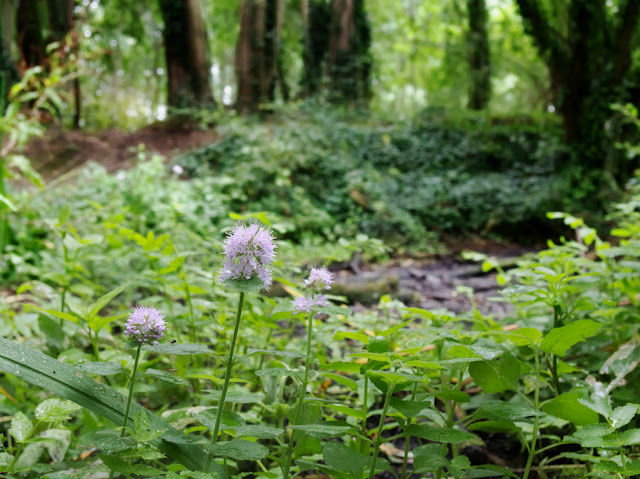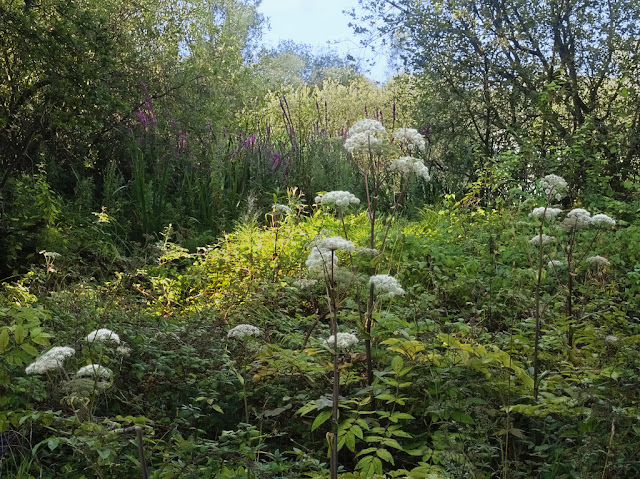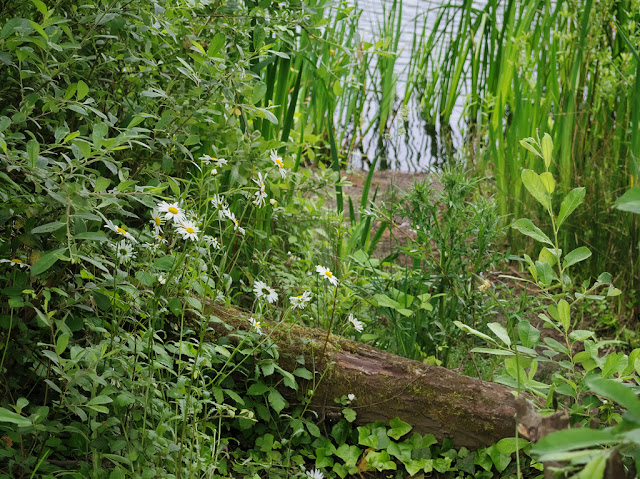The term was first used to describe the work of Eliot Porter. Working in the 1950s and 1960s, Porter was one of the pioneers of colour landscape and natural history photographs. In photographing the American landscape, nothing was too trivial for Porter's eye. The 1979 exhibition of his work (and subsequent book of the same title) 'Intimate Landscapes' includes pictures with titles such as 'Foxtail Grass', 'Columbine Leaves', 'Long Stemmed Grasses' , and 'Raspberry Leaves and Grass'. This gives a clear indication of the nature of the work and its range both in terms of area and subject matter covered by the photographs. For further information on Eliot Porter this review gives a good introduction to his work.
 |
| Dickerson's Pit - 30 August 2015 |
It will come as no surprise to readers of this blog that Porter's work has been a major inspiration for my own studies in Milton Country Park. I have already published quite a number of intimate landscapes so far in this blog. In this post, I want to highlight my use of the genre to create images of flowers in their environment such as the example above. Here water mint can be seen flowering on the eastern bank of Dickerson's Pit amongst the nettles and brambles surrounding a muddy inlet (seen in the middle on the right of the picture).
 |
| Todd's Pit - 30 June 2015 |
My second example of hedge parsley growing alongside the path on the western side of Todd's Pit highlights another characteristic of many of my intimate landscapes: the use of a very low viewpoint. By getting down to within a few centimetres of the ground, I can give stature and importance to fairly humble plants.
 |
| Dickerson's Pit - 2 August 2015 |
My third example was taken on the bank of the inlet on the western shore of Dickerson's Pit. This was one of only two clumps of montbretia in the park, both of which were within 20 metres of each other. My first attempt at this image was foiled when my pet labrador ate the subject!
 |
| Hall's Pond - 6 September 2015 |
The bracket fungus in this image are growing on some of the logs floating in Hall's Pond. The photograph was taken from above and the green background between the logs is duckweed.
 |
| Dickerson's Pit - 19 August 2015 |
For the picture above, I have returned to a spot on the eastern edge of Dickerson's Pit where I have already photographed yellow irises (After the May Flower) and purple loosestrife (Summer Flowers). This time, I have focused on the hogweed growing nearer the path.
Some authors have suggested that the horizon should not be visible in an intimate landscape. However, as here, with a low viewpoint, the sky can be visible without the overall area covered by the image being very large.
 |
| Todd's Pit - 17 June 2015 |
Another feature of the intimate landscape is that it highlights the complexity of the environment at this scale. In this picture, there are at least another five different plant species beside the dog daisy in an area no larger than six square metres. In a future post on intimate landscapes, I will be looking at using this technique to document plant communities.
Next: Late Summer Flowers
No comments:
Post a Comment